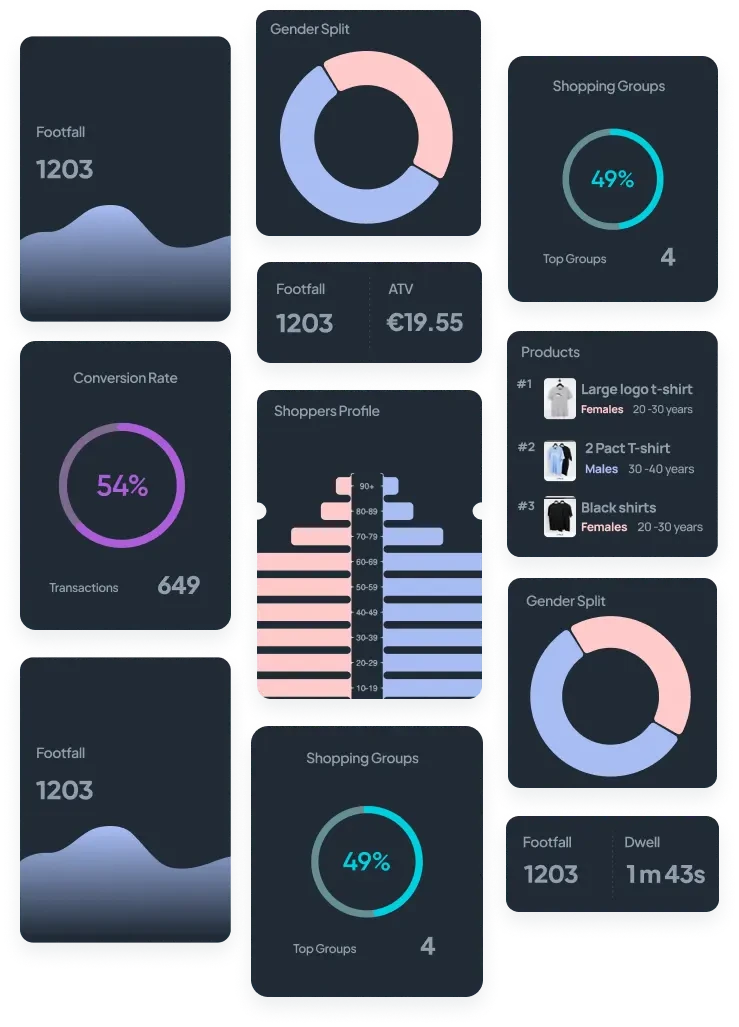When shopping, are you a Maximiser or a Satisficer?
Keith Monaghan
May 14, 2024
Cognitive psychologist, Herbert A. Simon, outlined a decision-making strategy back in the 1950’s, where he combined the terms satisfy and suffice, to create satisfice, in order to describe those who make decisions that will satisfy a need adequately enough. This can be a decision as simple as what type of beverage to buy in a store or as complicated as choosing a job, a school, or life partner.
This idea has been studied again and again by behavioural scientists, especially in the field of marketing and consumer trends. Another Herbert, author Herbert Sorensen, stated in his book Inside the Mind of the Shopper, that “money, time, and angst are the inputs that shoppers invest” when entering a retail location.
The idea of a satisficer is a shopper who is happy to come away from a store having purchased an adequate item to facilitate a need. However, on the opposite end of the spectrum, we have maximisers, a faction of shoppers who will generate a lot more angst while making decisions.
Cognitive psychologists like to think of the brain as a computer processor that tries to make decisions as quickly as possible. The brain doesn’t like being bogged down in stressful decision-making processes. In comparison to satisficers, maximisers tend to want to know all the options available to them before purchasing.
Since learning about satisficers and maximisers from Barry Schwartz’s incredible book The Paradox of Choice, I’ve realised just how much of a maximiser I tend to be, as a shopper. It might sound like a good thing to be a maximiser, but not when every visit to a shop to look at clothes, electronics, books, or whatever else results in a three-hour trip of indecisiveness.
I’ll often have an idea of what I’m going to purchase that day, travel to a shopping district or centre and end up going in and out of several shops, pausing in-store with a desired item in hand, and then scrapping the whole process, and going back home on the bus with no new items and a wasted afternoon. This is the horror of being a maximiser.
Barry Schwartz reasons that a maximiser cannot be certain they’ve made the right choice until they’ve assessed every option available to them.
The maximiser can’t know for sure that a particular pair of shoes is the best choice, unless they’ve visited literally every other shoe store, compared prices, and browsed every website to see if there’s a better price online. Then they might be compelled to check whether that online purchase will even be cheaper with the additional delivery costs or hidden fees. This added to the fact that there’s now a wait of 5-10 days to receive the item.
It doesn’t just need to be high priced items either. The scene from the Simpsons of Mr. Burns stuck in the middle of the aisle at the supermarket comes to mind, where he is paralyzed in a confused state, unsure whether he should buy ketchup or catsup. Adding to the humour of the scene is the fact that Mr. Burns is the richest man in Springfield and could easily just buy both options.
Professor of Psychology at the University of Michigan, Stephanie Preston, stated in a BBC article from March 2021, Do ‘maximisers’ or ‘satisficers’ make better decisions? that by trying to maximise the outcome, by predicting the use and satisfaction that will come from this product, enormous amounts of time will be lost by the maximiser in the decision making process.
Adding in a time limit for the decision will only add to the anxiety and will be more likely to cause buyer’s remorse from not having the time to truly maximise. She states as well that maximisers are more likely to be depressed, overly perfectionist, and prone to regret and self-blame. Barry Schwartz, in the same article, echoes that maximisers have the tendency to do better but feel worse, and that the main drawback to satisficing is that their decisions may not necessarily be the ‘best’ outcome that gives maximum return.
The conclusion from both is to try and get the best of both worlds, by not stressing over simpler, less impactful choices like a place to go for lunch or a household appliance, but take much greater time in maximising life’s more important choices.
Get Started
What Gets Measured, Gets Managed!
VisionR mines data directly from shoppers as they navigate stores, empowering retailers with real-time insights to maximise their decisions & revenues.
